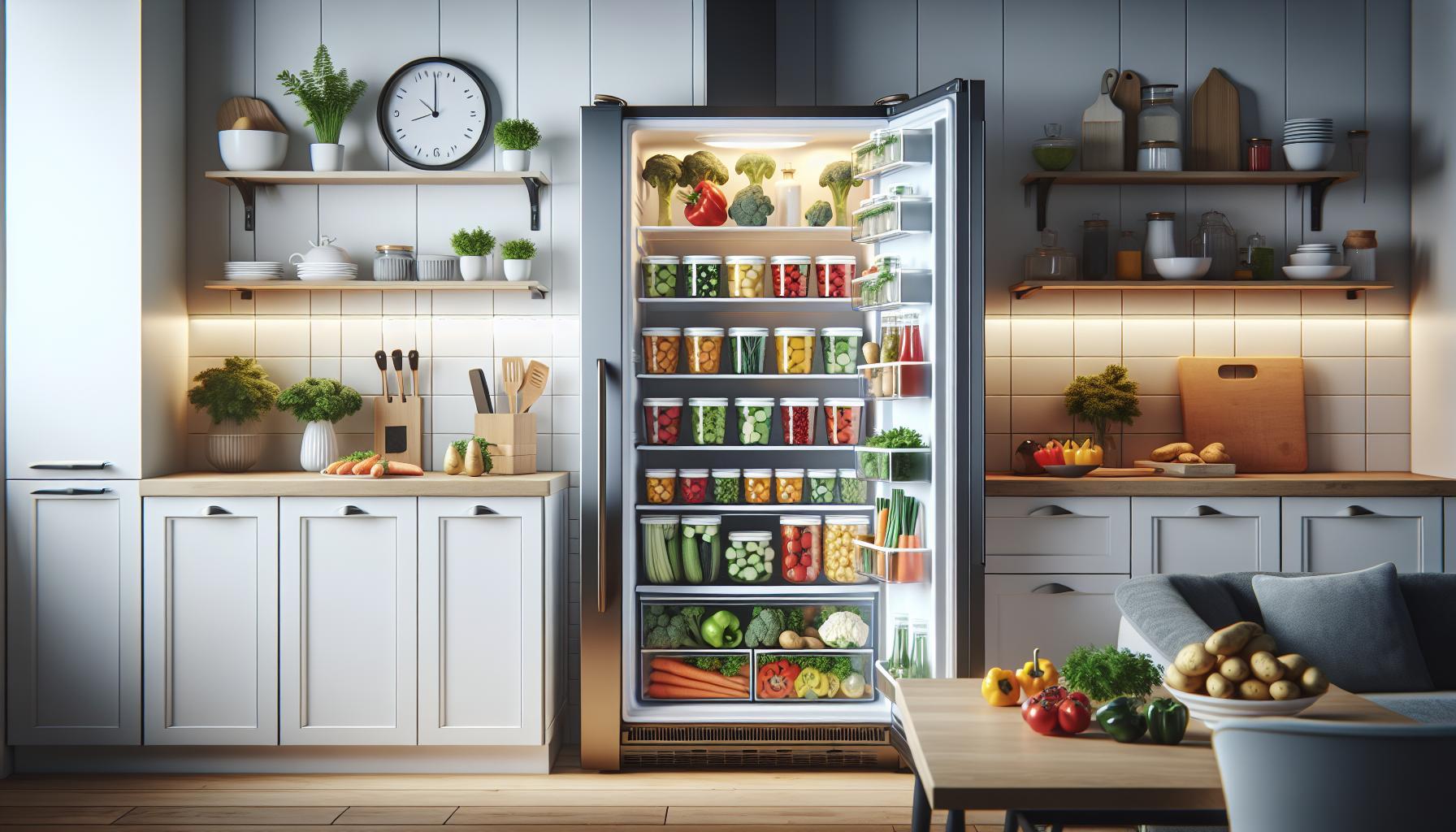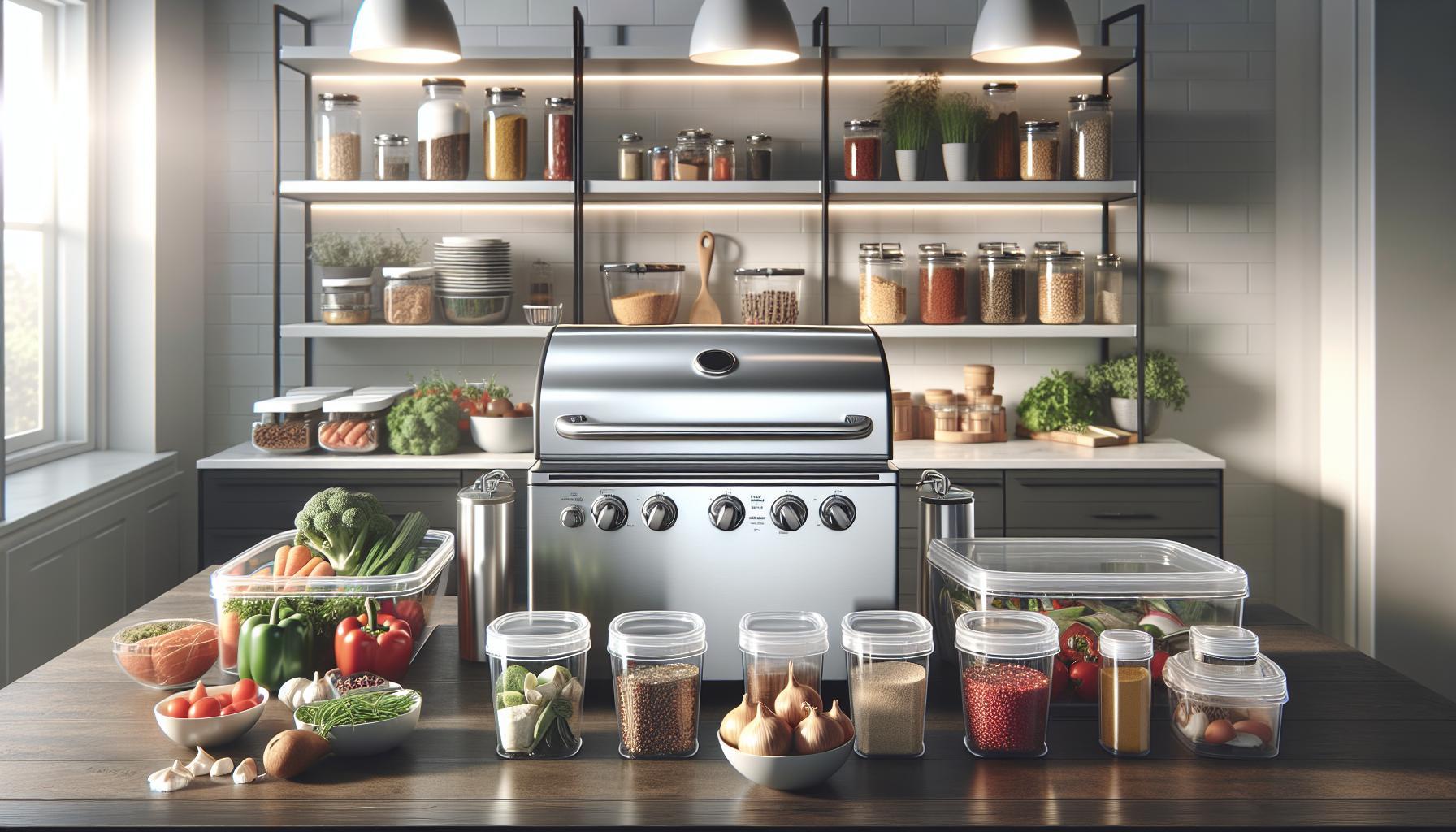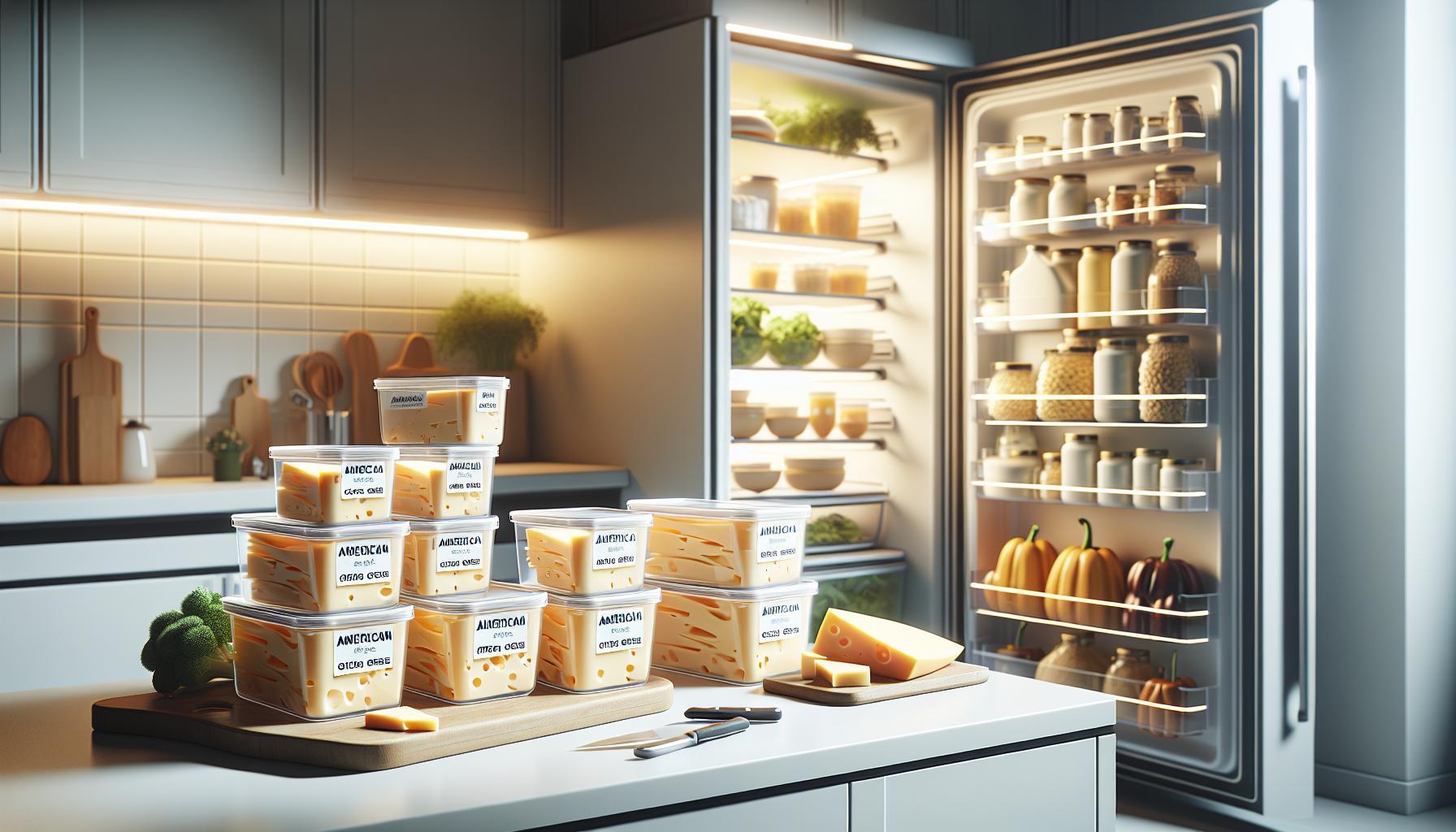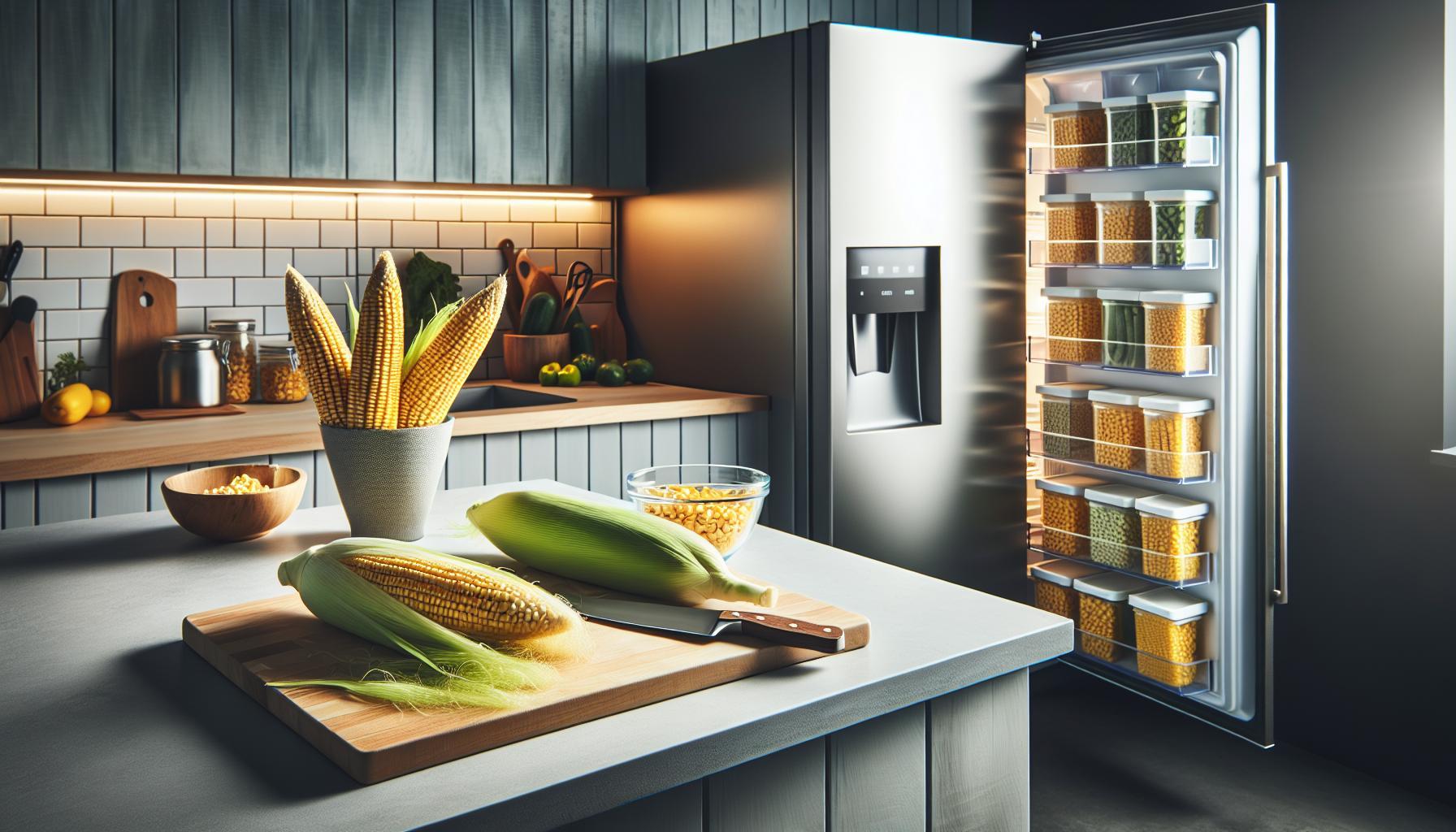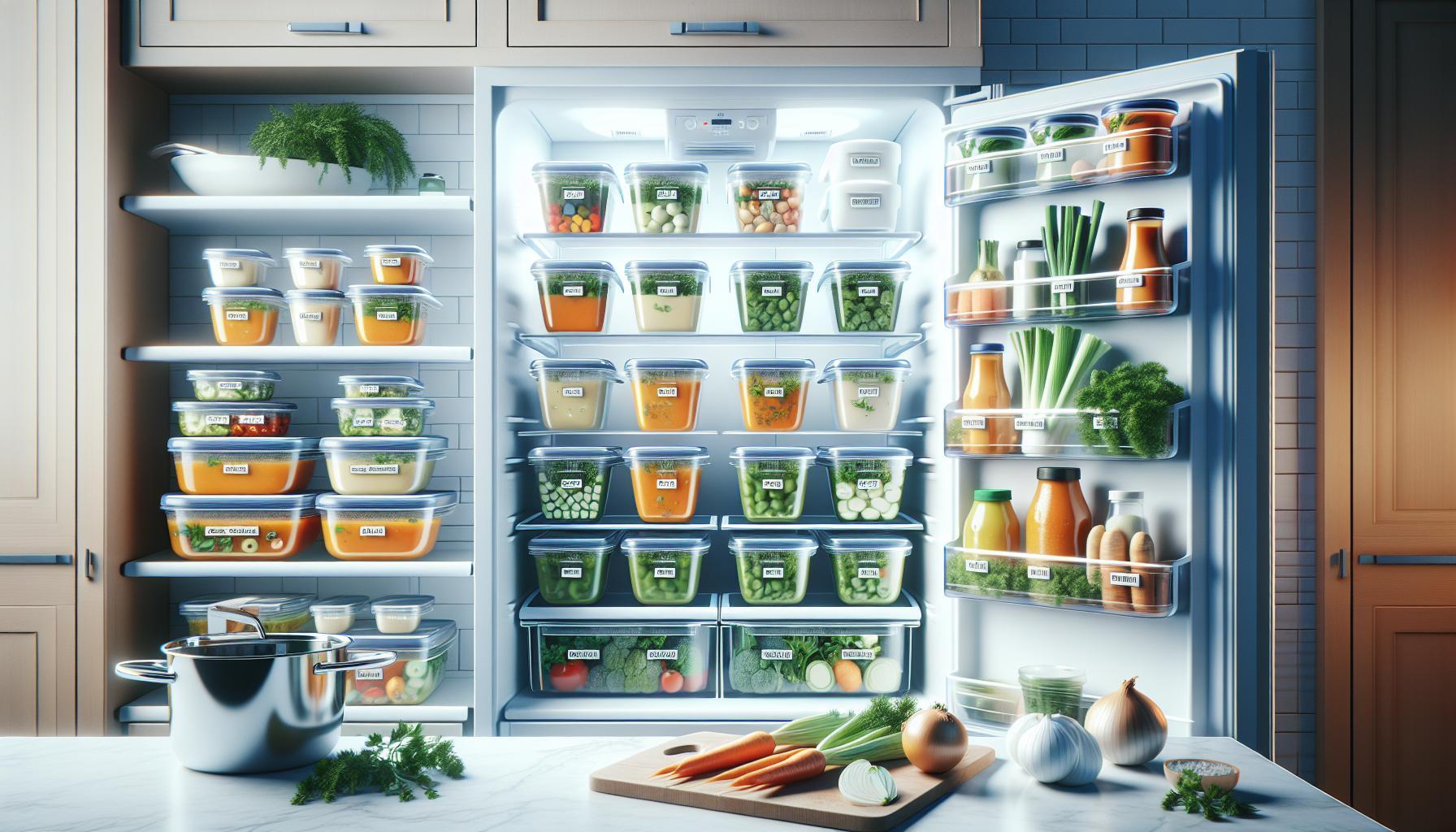Did you know that improperly stored cooked vegetables can lead to foodborne illnesses and unnecessary waste? Understanding how long these nutrient-rich foods last in the fridge is vital for both your health and your budget. In this article, we’ll explore the safety guidelines for cooked veggies, helping you reduce waste and make informed decisions about what to keep and when to toss it.
By following simple storage tips and recognizing when your leftovers are no longer safe to eat, you can maximize your meal prep efforts and enjoy your dishes at their best. Join us as we delve into practical advice on how to keep your cooked vegetables fresh and delicious, ensuring that you stay safe and satisfied with every bite.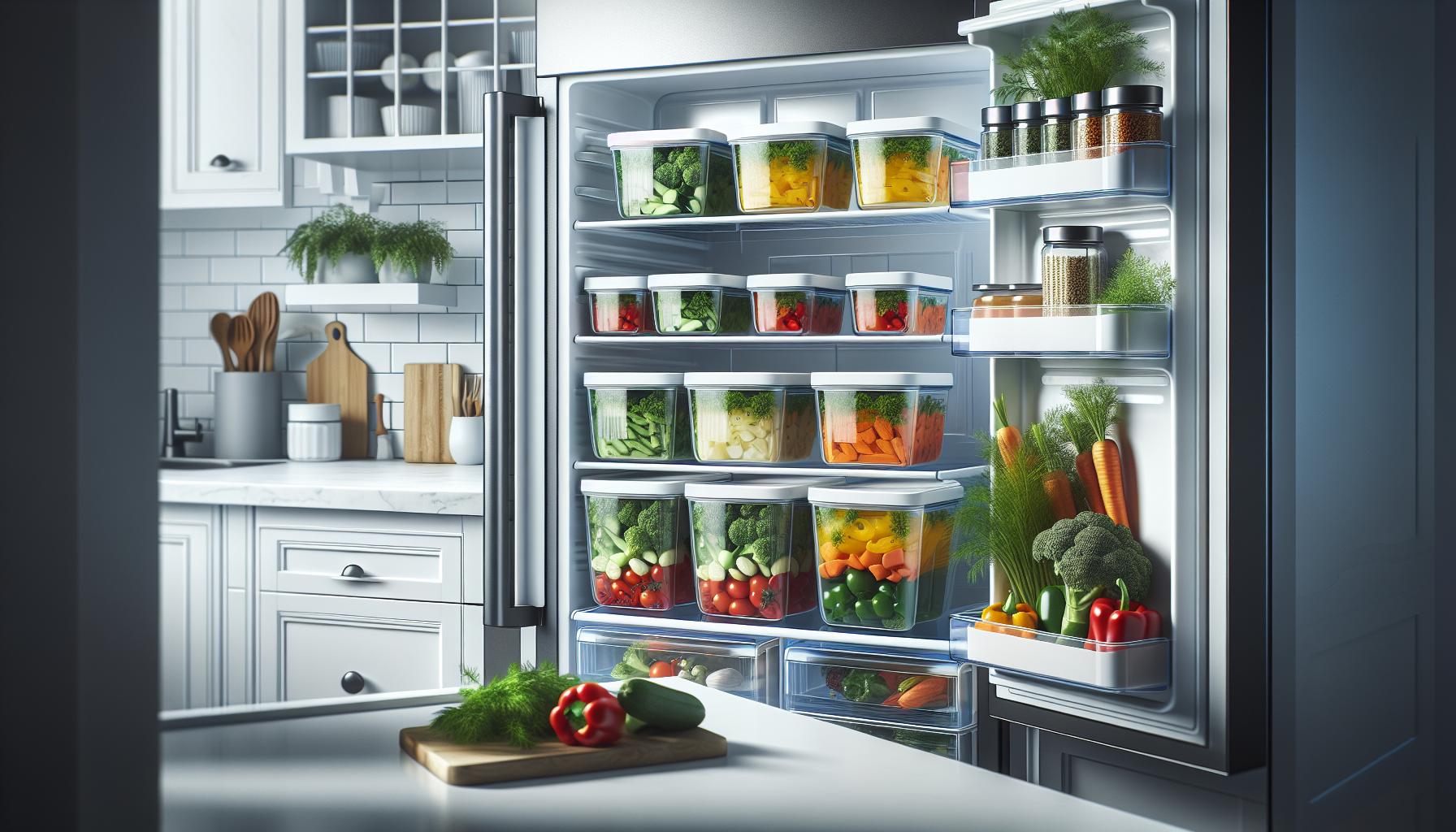
How Long Do Cooked Vegetables Last?
Cooked vegetables are a convenient and healthy option for many meals, but understanding their shelf life is crucial for maximizing food safety and minimizing waste. Generally, cooked vegetables can last in the refrigerator for about 3 to 7 days, depending on the type of vegetable and how well they were stored. To ensure they remain safe to eat, it’s important to store them in airtight containers at temperatures below 40°F (4°C). The fresher the vegetables were when cooked, the longer they will typically last.
It’s key to note that certain vegetables have shorter lifespans than others. For example, leafy greens like spinach and kale may start to deteriorate in quality after just a few days, while root vegetables like carrots and potatoes can often stay good for up to a week or more. To help manage your leftovers effectively, always label your containers with the date they were cooked. This not only helps you keep track of their freshness but also encourages you to use them before they spoil.
To make the most of your cooked vegetables, it’s worth considering how you store them. Avoid leaving them at room temperature for more than two hours after cooking, as this can promote the growth of harmful bacteria. If you don’t anticipate using your cooked veggies within the week, freezing them can be an excellent option. Most cooked vegetables maintain their quality in the freezer for about 10 to 12 months, allowing you to enjoy their benefits long after the initial cooking. By following these guidelines, you can ensure that your meals are not only safe to consume but also delicious and waste-free.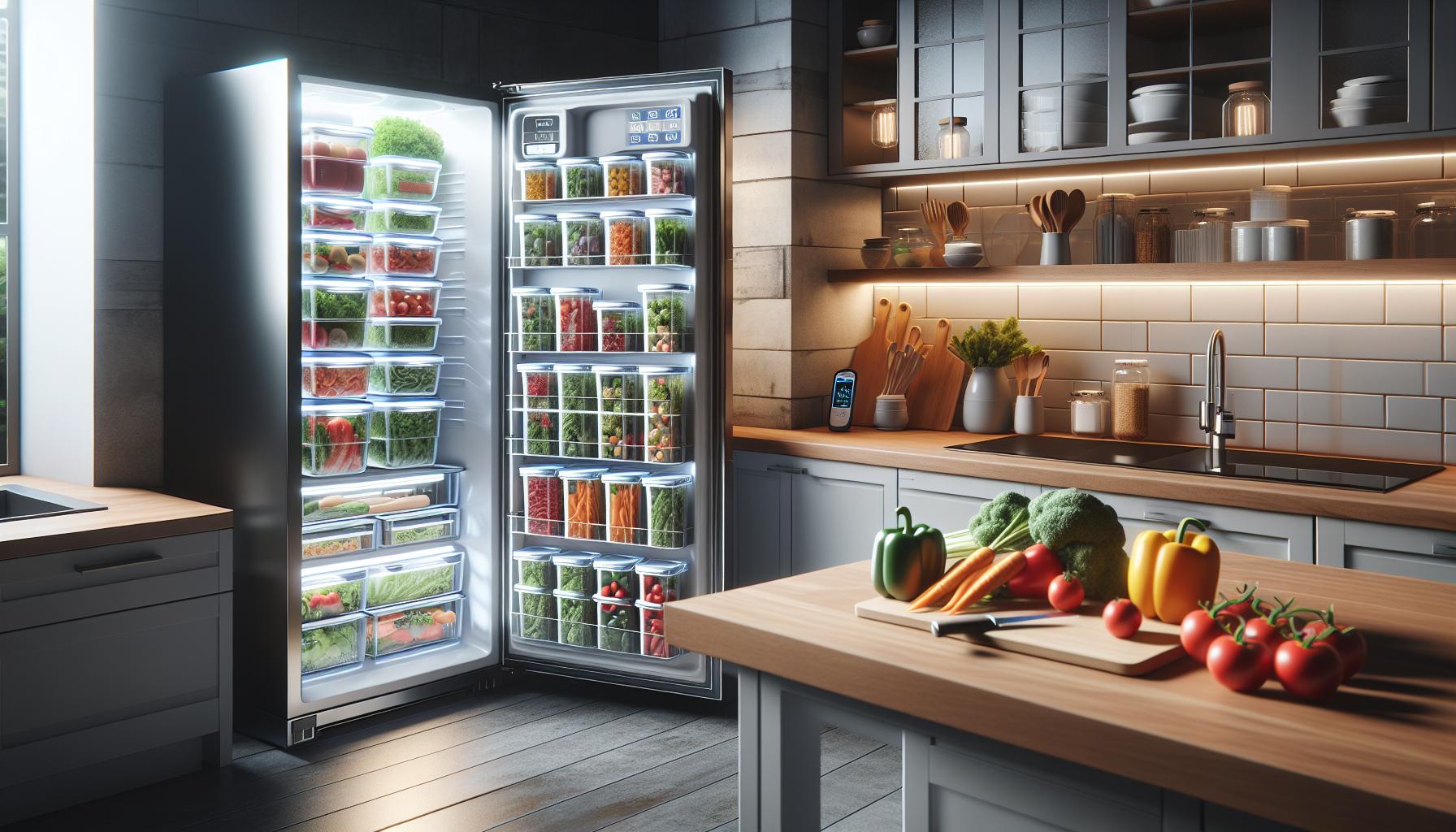
Signs Your Cooked Veggies Have Spoiled
Cooked vegetables can enhance any meal, but they can quickly lose their freshness and safety. Recognizing the signs that your cooked veggies have spoiled is essential in preventing foodborne illnesses and ensuring you make the most of your cooking efforts. When assessing cooked vegetables, there are a few key indicators to watch for that can help you determine whether they are still good to eat.
Look for visible changes in texture and appearance. Spoiled cooked vegetables may become slimy or develop a mushy consistency, especially for softer varieties like cooked spinach or zucchini. Additionally, discoloration is a major red flag; if your once-bright broccoli turns dull or if cooked carrots appear dark or uneven, it’s advisable to discard them. Keep an eye out for any mold growth or unusual spots, which are clear signs of spoilage and should not be taken lightly.
Smell is another powerful indicator of freshness. If your cooked vegetables emit a sour or otherwise unpleasant odor, it’s best to err on the side of caution. Fresh vegetables should smell earthy or neutral; any off-putting scent suggests fermentation or spoilage. Finally, pay attention to the taste. If you do a quick taste test and find the flavor to be off or unpleasant, it’s time to throw those veggies away.
In general, adhering to food safety guidelines and knowing the shelf life of various cooked vegetables can keep your meals safe and enjoyable. With proper storage in sealed containers at low temperatures, you can extend their usability, but always prioritize sensory checks to determine freshness. By being vigilant about these signs of spoilage, you ensure a safer dining experience and reduce food waste effectively.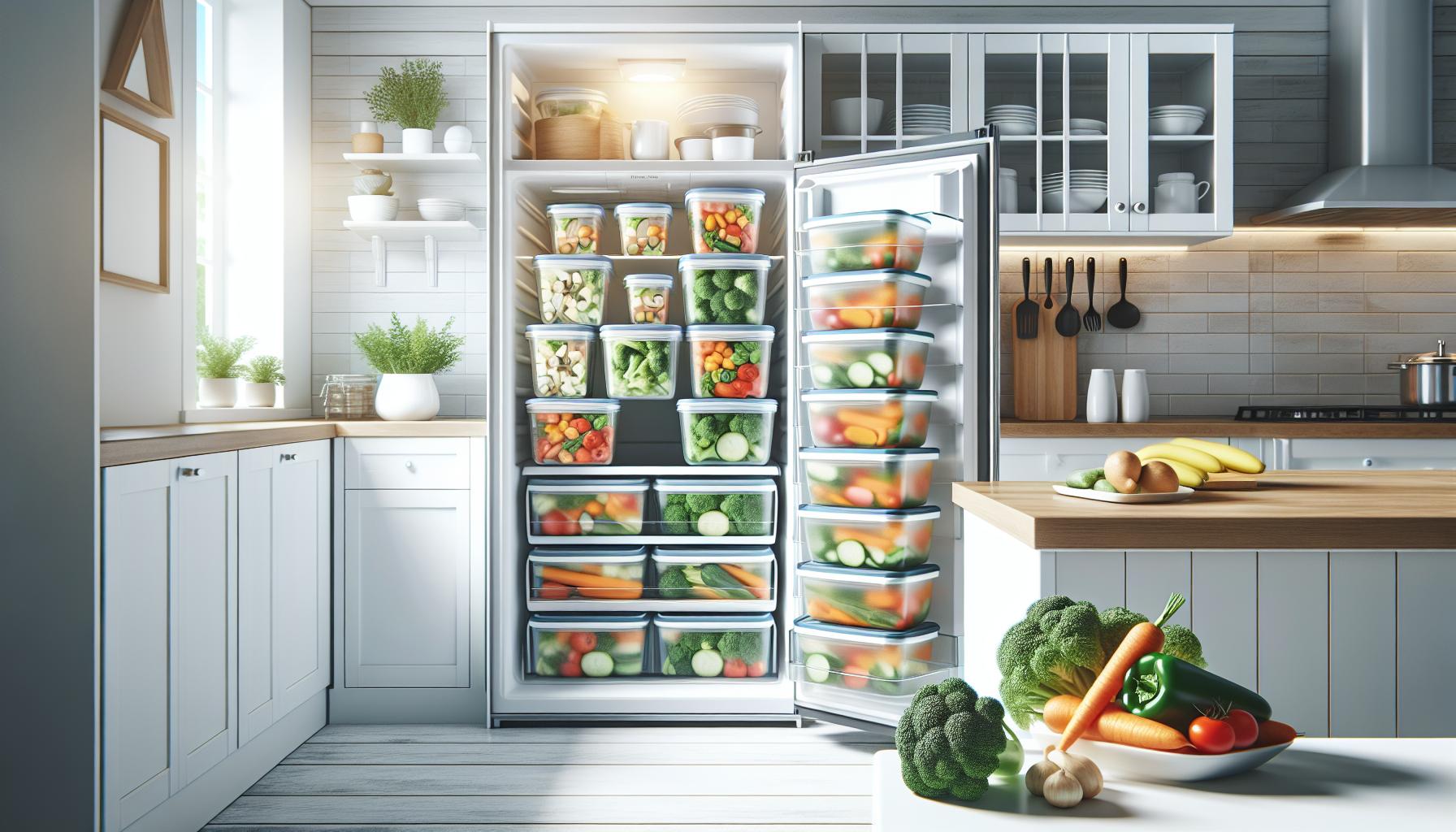
Best Practices for Storing Cooked Vegetables
Storing cooked vegetables properly is essential for maintaining their freshness and safety. Did you know that when stored correctly, most cooked vegetables can last in the refrigerator for 3 to 7 days? Here are some best practices that can help you maximize your cooked vegetable shelf life while reducing waste.
Begin by allowing your cooked vegetables to cool to room temperature before refrigeration. Placing hot vegetables directly in the fridge can raise the internal temperature of your refrigerator, potentially jeopardizing the safety of other food items. Once cooled, ensure you store them in airtight containers. Using glass or BPA-free plastic containers not only keeps them fresh but also helps prevent the transfer of odors from other items in your fridge.
It’s also wise to label your containers with dates. This simple practice makes it easy to identify which vegetables need to be consumed first and helps you keep track of their shelf life. Generally, cooked vegetables should be consumed within 3 to 5 days, but tougher varieties like carrots or Brussels sprouts may last on the longer end of this range. Remember to check regularly for any signs of spoilage, such as unpleasant odors or visible mold.
For longer storage, consider freezing your cooked veggies. Most cooked vegetables freeze well and can last up to 10 to 12 months in the freezer. However, flash-freezing them-spreading them out on a baking sheet before transferring to a container-can help maintain their texture and taste upon thawing. Always label your frozen items with dates, just as you would with refrigerated items, to keep track of their freshness.
By following these best practices, you can enjoy your cooked vegetables safely while minimizing food waste, ensuring that your kitchen remains a productive and eco-conscious space.
Optimal Storage Containers for Cooked Veggies
Storing cooked vegetables effectively is crucial for prolonging their freshness and nutritional value. Choosing the right storage containers can make a significant difference in how long your prepared veggies last and how safe they are for consumption. Airtight containers such as glass jars or BPA-free plastic containers are ideal as they keep out oxygen and moisture, two factors that can accelerate spoilage. In addition, glass containers are excellent not only for their durability but also for their ability to resist staining and retaining odors from previous meals.
Types of Containers to Consider
When it comes to selecting storage options, consider the following types:
- Glass Containers: These are reusable, non-reactive, and safe for both refrigerator and freezer storage. They often come with airtight lids that prevent spills and maintain freshness.
- BPA-Free Plastic Containers: Lightweight and versatile, these containers are great for everyday use. Ensure they are labeled microwave-safe if you plan to reheat your veggies directly.
- Vacuum-Sealed Bags: For longer storage, vacuum sealing can dramatically extend the lifespan of cooked vegetables. By removing air, you reduce the chances of freezer burn, making them an excellent choice for freezing.
- Silicone Bags: These eco-friendly options are flexible, making them easy to store in tight spaces. Plus, they are reusable and can withstand both freezer and microwave temperatures.
Essential Features to Look For
It’s essential to consider specific features when choosing a storage container. Here are some characteristics to keep in mind:
- Airtight Seals: Containers with rubber gaskets ensure an airtight fit, keeping your cooked vegetables fresh for a longer period.
- Transparent Materials: Transparent containers allow you to easily see the contents and monitor for spoilage without having to open the container.
- Stackability: Opt for containers that can stack conveniently in the fridge or freezer, maximizing your storage space.
- Safety Ratings: Always check that plastic containers are labeled as microwave-safe and free from harmful chemicals like BPA.
By choosing the right storage containers, you can significantly enhance the shelf life of your cooked vegetables, ensuring they remain safe and nutritious for consumption. Proper storage not only protects your food from spoilage but also contributes to minimizing food waste, allowing you to enjoy your meals to the fullest.
How to Reheat Cooked Vegetables Safely
When it comes to enjoying leftovers, knowing how to properly reheat cooked vegetables not only enhances their flavor but also ensures food safety. Reheating vegetables may seem straightforward, but there are essential practices to follow to avoid the risk of foodborne illnesses. Cooked vegetables can generally be stored in the refrigerator for about 3 to 7 days, depending on the type and how they were initially prepared. Therefore, it’s important to understand safe reheating methods to maximize both taste and safety.
To begin, always check that cooked vegetables cool down to room temperature before storing them in the fridge, which helps in retaining their texture and flavor. When you’re ready to reheat, ensure that the vegetables are heated to an internal temperature of at least 165°F (74°C). This temperature is crucial for killing any potential pathogens that may have developed during storage. An effective way to achieve this is by using a food thermometer, which provides an accurate reading to confirm safety.
Reheating Methods
The method you choose to reheat cooked vegetables can affect not just safety, but also taste. Here are some simple approaches:
- Microwave: Place the vegetables in a microwave-safe container, cover with a microwave-safe lid or damp paper towel (to prevent them from drying out), and heat in short bursts, stirring in between. This method is efficient and preserves moisture.
- Stovetop: Heat a small amount of water or oil in a skillet and add your vegetables. Stir frequently over medium heat until they are hot throughout. This method enhances the texture and can prevent sogginess.
- Oven: For larger quantities, spread the vegetables on a baking sheet, cover with foil, and warm in a preheated oven at 350°F (175°C) for about 10-15 minutes, or until fully heated. This method is great for maintaining crispness.
- Steamer: If you’re concerned about losing nutrients, steaming is an excellent option. Place your vegetables in a steaming basket over boiling water for a few minutes until heated through.
It’s crucial to avoid reheating cooked vegetables more than once, as doing so increases the risk of foodborne illness. If you notice any off smells, discoloration, or sliminess upon reheating, it’s safest to discard the vegetables rather than risk consuming spoiled food. Following these safe reheating practices not only helps in enjoying your leftovers but also minimizes waste, allowing you to maximize the longevity and quality of your cooked produce.
Creative Ways to Use Leftover Cooked Vegetables
Transforming leftover cooked vegetables into exciting new dishes not only minimizes food waste but also adds variety to your meals. With just a bit of creativity, those leftover greens, roasted veggies, or steamed sides can shine in fresh, innovative ways. Here are some practical ideas to inspire your culinary adventures.
Start by incorporating leftover cooked vegetables into hearty soups and stews. Simply chop the veggies into bite-sized pieces and add them to a simmering broth with your choice of proteins or grains. This not only enhances the texture and flavor but also boosts the nutritional value of your dish. For example, adding leftover broccoli and carrots to a chicken soup can create a nourishing meal that feels brand new.
Another fantastic option is to blend the cooked vegetables into sauces or dips. Pureeing steamed or roasted veggies can produce a vibrant pasta sauce or a delicious spread for sandwiches. For instance, blending cooked spinach with garlic, cream cheese, and a dash of lemon juice results in a creamy spinach dip that’s perfect for entertaining.
If you’re looking for a quick meal, consider crafting a vegetable stir-fry or frittata. Toss your leftover vegetables with a protein source like tofu or eggs, add a splash of soy sauce or your favorite seasoning, and you’ll have a satisfying dish ready in no time. Stir-fries are especially versatile and can be served over rice, quinoa, or nestled in wraps for easy eating on the go.
Don’t overlook the boundary of baked goods! Incorporating finely chopped vegetables into muffins, pancakes, or savory breads can be a delightful way to create a nutritious treat. Carrot or zucchini muffins are well-loved classics that disguise healthy vegetables in a sweet and satisfying way, perfect for breakfast or a snack.
By continually experimenting with your leftovers, you not only encourage food safety by using items before they spoil but also promote a more sustainable kitchen. Embrace these approaches to elevate your culinary game while ensuring your meals are both delicious and economical!
Common Mistakes in Vegetable Storage
Proper storage of cooked vegetables can significantly extend their shelf life and ensure your meals remain safe and delicious. Unfortunately, common mistakes can lead to food waste and potential health risks. One of the most frequent errors is not cooling cooked veggies properly before refrigerating them. Allowing cooked vegetables to sit out for too long at room temperature can promote bacterial growth. Ideally, they should be refrigerated within two hours after cooking to reduce the risk of foodborne illnesses.
Another misconception is that all vegetables have the same storage requirements. Some cooked vegetables, like spinach or mushrooms, can spoil faster than sturdier options like carrots or zucchini. It’s essential to know which cooked vegetables can last up to a week in the fridge and which should be consumed sooner-generally, most cooked vegetables can be stored for 3 to 5 days. Additionally, storing them in airtight containers can help in preserving their freshness, yet some may mistakenly use containers that are too large, which can leave excess air and moisture that promotes spoilage.
Improperly labeling leftovers is also a common oversight. Without clear labels indicating the contents and the date, it’s easy to forget how long something has been stored. Make it a practice to label containers with the date they were cooked. This practice helps maintain food safety and keeps your refrigerator organized.
Finally, many people overlook the temperature of their refrigerator. The ideal temperature for storing cooked vegetables is at or below 40°F (4°C). If your refrigerator is set too warm, it can compromise the safety and quality of your food. Regularly checking your appliance’s temperature can help prevent these issues and guarantee that your meals remain safe to consume for as long as possible. By avoiding these storage mistakes, you can maximize the longevity of your cooked vegetables and reduce food waste effectively.
Importance of Food Safety Guidelines
Understanding and adhering to food safety guidelines is crucial for maintaining not only the quality of your cooked vegetables but also your health. Improper storage and handling can lead to foodborne illnesses, which affect millions of people each year. By following safe practices, you can ensure that your meals are not only delicious but also safe to consume.
One of the most critical safety practices involves the temperature at which cooked vegetables are stored. Cooked veggies should be refrigerated within two hours of cooking. If left at room temperature for too long, harmful bacteria can multiply rapidly. The USDA recommends that cooked foods be kept at temperatures below 40°F (4°C) to slow down bacterial growth. Additionally, using a food thermometer can help ensure your refrigerator maintains the correct temperature, which is vital for food safety.
Labeling leftover cooked vegetables with the date they were prepared also plays a significant role in food safety. This simple step makes it easier to track freshness, preventing you from consuming spoiled food. Generally, cooked vegetables are best consumed within 3 to 5 days when stored properly in airtight containers. For longer storage, consider freezing your cooked veggies, as this method can extend their shelf life while preserving nutritional value.
Incorporating these food safety guidelines into your meal prep routine not only helps you reduce waste but also ensures that your meals remain nutritious and safe. Taking these precautions can prevent unnecessary health risks and enhance your overall dining experience. Prioritizing food safety ultimately allows you to enjoy your culinary creations with peace of mind.
Tips to Reduce Food Waste with Cooked Veggies
Cooking vegetables not only enhances their flavors, but it can also lead to excess food waste if not handled properly. To minimize waste while ensuring safety, it’s essential to adopt some effective strategies. One of the simplest tactics is meal planning. By determining what meals you want to prepare for the week, you can cook only what you need, reducing the likelihood of leftovers. When you do have cooked veggies left over, store them in transparent, airtight containers. This enables you to easily see what you have, making it less likely that they will be forgotten in the fridge.
Another effective method is to incorporate leftover cooked vegetables into new meals. For instance, adding them to a stir-fry, soup, or omelet not only rescues them from being discarded but also boosts the nutritional content of your dishes. You can also consider using veggies as toppings for pizzas or in sandwiches. This creative use of leftovers gives them a new life and helps you enjoy them before they spoil.
Moreover, freezing cooked vegetables is an excellent way to extend their shelf life. If you know you won’t use them within a few days, simply portion them into freezer-safe bags or containers and label them with the date. This preserves their nutrients and flavor while also preventing waste. When stored properly, most cooked vegetables can last several months in the freezer.
Lastly, stay vigilant about food safety. Regularly check your fridge for any signs of spoilage, and don’t hesitate to compost any items that have gone bad instead of throwing them in the trash. Implementing these practices not only helps you reduce food waste but also makes your kitchen more efficient and your meals more enjoyable.
Freezing Cooked Vegetables: A Complete Guide
Freezing cooked vegetables is a fantastic way to extend their freshness and reduce food waste, allowing you to enjoy the bounty of your meal prep long after the initial cooking session. Properly frozen vegetables maintain their flavor, texture, and nutrients. To ensure that your vegetables freeze well and stay safe for consumption, follow these straightforward steps.
Start by allowing your cooked vegetables to cool completely at room temperature for no more than two hours. This step is crucial, as placing hot vegetables directly into the freezer can raise the temperature inside and compromise the safety of other items stored there. Once cooled, portion the veggies into suitable containers or bags. Use freezer-safe plastic bags or rigid containers, ensuring you leave some headspace if using containers, as liquids expand when frozen. Before sealing, remove as much air as possible from bags to prevent freezer burn, which can affect both taste and texture.
Storage Duration
Most cooked vegetables can be stored in the freezer for up to 10-12 months if properly sealed. However, for best quality and flavor, try to consume them within the first three to six months. Certain vegetables freeze better than others; for instance, cooked green beans and carrots tend to maintain their quality longer than starchy vegetables like mashed potatoes or pumpkin. Here’s a quick reference table for freezing durations and ideal cooking methods:
| Vegetable | Freezing Duration (Months) | Best Cooking Method |
|---|---|---|
| Broccoli | 10-12 | Steamed or Blanched |
| Carrots | 10-12 | Steamed or Cooked |
| Spinach | 6-12 | Blanched |
| Potatoes (cooked) | 3-6 | Mashed or Roasted |
Thawing and Reheating
When you’re ready to use your frozen vegetables, the safest method for thawing is to transfer them to the refrigerator for several hours or overnight. You can also cook them directly from frozen, which is perfect for stir-fries or soups. However, if you choose to thaw in the microwave, be sure to consume them immediately after reheating to avoid any safety issues. Always reheat cooked vegetables to an internal temperature of 165°F (74°C) to ensure they are safe to eat.
By following these guidelines, you can effectively freeze and store your cooked vegetables, ensuring they remain a delicious and nutritious addition to your meals while minimizing waste.
Understanding Shelf Life and Expiration Dates
Cooked vegetables have a surprisingly short shelf life, which is often a source of confusion for many. While it’s easy to think they can last indefinitely, the reality is that cooked veggies should ideally be consumed within a week when stored properly in the refrigerator. Understanding these timeframes is essential not only for taste and texture but also for food safety. Bacteria can multiply quickly on leftovers left out too long, making it crucial to stick to guided time limits.
To make the most of cooked vegetables, it’s vital to store them correctly. Always place leftovers in airtight containers and keep them at temperatures below 40°F (4°C). Generally, cooked vegetables should be consumed within 3 to 7 days when stored this way. Some signs to watch for include an off smell, discoloration, or a slimy texture, all of which indicate spoilage. When in doubt, remember that “when in doubt, throw it out” is a good rule to follow to ensure safety.
It’s important to note that while cooked vegetables can still be safe to eat after a week, their quality will degrade significantly over time. For optimal flavor and nutrition, try to consume them sooner rather than later. If you find yourself with more vegetables than you can eat in a short timeframe, consider freezing them as an alternative to combat waste and extend their usability. Frozen cooked vegetables can last for up to 10-12 months in the freezer when properly stored, allowing for flexibility in meal planning and preparation.
In conclusion, being mindful of the shelf life and proper storage of cooked vegetables will enhance your culinary experience while keeping food safety at the forefront. By adhering to recommended timelines, you not only reduce waste but also ensure that meals remain enjoyable and safe to consume.
Frequently Asked Questions About Cooked Veggies
As you plan meals and store leftovers, you might wonder about the safety and longevity of your cooked vegetables. One common question is, “How long can I keep cooked veggies in the fridge?” Ideally, cooked vegetables should be consumed within 3 to 7 days when stored properly in airtight containers at temperatures below 40°F (4°C). This timeframe helps maintain both safety and quality, preventing the growth of harmful bacteria.
Another frequent inquiry involves identifying spoilage. Signs that your cooked vegetables may have gone bad include an off smell, changes in color, or a slimy texture. If any of these indicators are present, it’s best to err on the side of caution and discard the food. Remember, the saying “when in doubt, throw it out” is a crucial guideline for food safety.
It’s also important to consider the reheating method for your cooked vegetables. To safely reheat them, ensure they reach an internal temperature of 165°F (74°C). This temperature kills off any potential bacteria that may have developed during storage. Using a microwave, stovetop, or oven can effectively achieve this.
Finally, if you find yourself with excess cooked vegetables, freezing is an excellent option for extending their life. Frozen cooked vegetables can last up to 10-12 months in the freezer. Just ensure they’re stored in airtight containers or freezer bags to minimize freezer burn, allowing you to enjoy their flavors and nutrients at a later date.
Q&A
Q: How long do cooked vegetables last in the fridge?
A: Cooked vegetables can last in the fridge for 3 to 7 days when stored properly in an airtight container. For optimal freshness, consume them within the first 4 days after cooking.
Q: Can I freeze cooked vegetables, and how long do they last?
A: Yes, you can freeze cooked vegetables to extend their shelf life. They typically last for about 10 to 12 months in the freezer. Ensure they are cooled, portioned, and placed in freezer-safe containers or bags for best results.
Q: What are the signs that cooked vegetables have gone bad?
A: Signs of spoilage in cooked vegetables include an off smell, slimy texture, discoloration, and mold. If you notice any of these changes, it’s best to discard them to avoid foodborne illness.
Q: How can I safely reheat cooked vegetables?
A: To safely reheat cooked vegetables, use a microwave, stovetop, or oven until they reach an internal temperature of 165°F (74°C). Stir frequently during reheating to ensure even temperature distribution.
Q: Is it safe to eat cooked vegetables after a week in the fridge?
A: While cooked vegetables may still be safe after a week, it’s always best to check for spoilage signs first. If you’re unsure, it’s safer to discard them to avoid potential foodborne illness.
Q: What are the best practices for storing cooked vegetables?
A: Store cooked vegetables in airtight containers in the fridge to maintain freshness. Label containers with the date of cooking, and cool leftovers to room temperature before refrigerating to prevent condensation and spoilage.
Q: Can I eat cooked vegetables that have been left out overnight?
A: It is not safe to eat cooked vegetables left out at room temperature for more than 2 hours. Bacteria can multiply rapidly in that time frame, increasing the risk of foodborne illness.
Q: How can I reduce food waste with leftover cooked vegetables?
A: To reduce food waste, incorporate leftover cooked vegetables into soups, stews, or stir-fries. You can also blend them into smoothies or use them as pizza toppings. Storing them properly can also help extend their usability.
Closing Remarks
Now that you know how long cooked veggies can last in the fridge, it’s time to put this knowledge into practice! Remember, properly storing your vegetables not only helps reduce waste but also ensures you enjoy delicious, safe meals. If you’re still uncertain about food safety, check out our detailed guides on how to store leftovers and recognize spoilage signs.
Don’t wait-take action today and clear out your fridge to make space for fresh veggies! For more tips on maximizing food freshness, subscribe to our newsletter and stay informed. Have your own experiences or tips regarding cooked vegetable storage? We’d love to hear from you in the comments below! Your journey toward better food safety starts now-let’s make every bite count!

